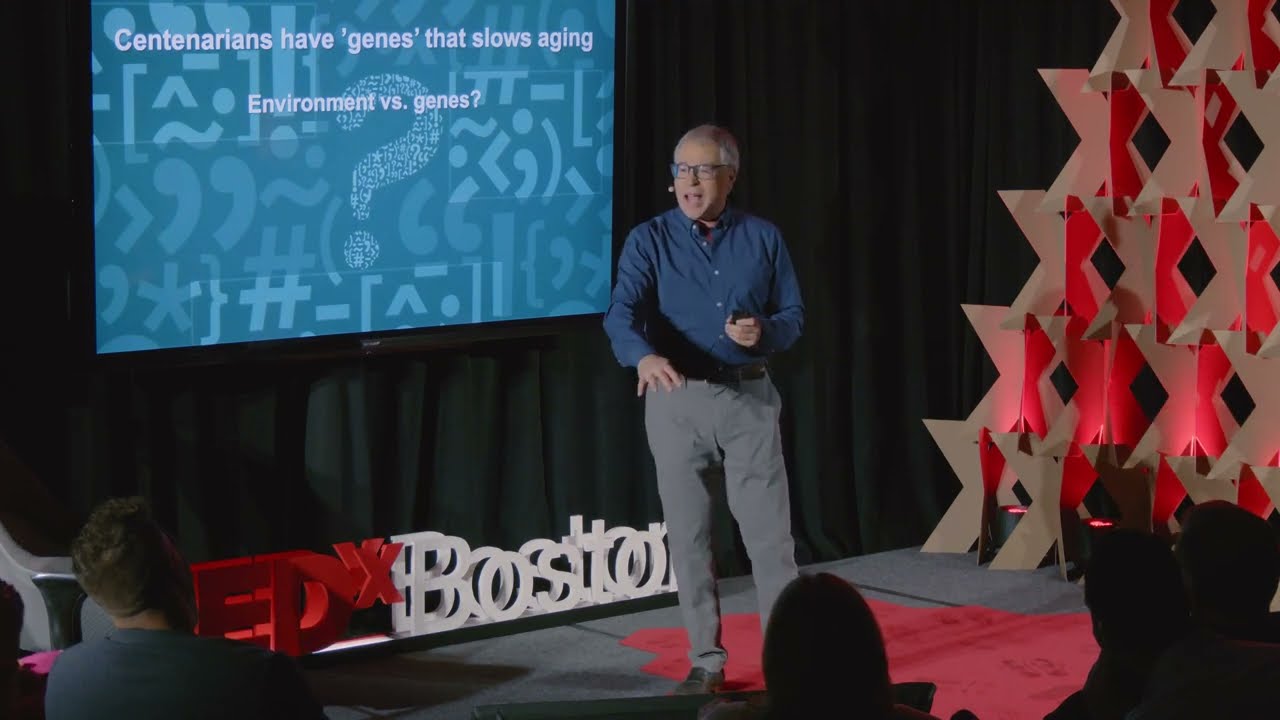*****
Summary of Transcript:
The video discusses the biology of aging and how it is responsible for age-related diseases. Scientists have discovered hallmarks of aging that can be targeted to delay, stop or reverse aging, leading to a longer and healthier lifespan. The genetics of exceptional longevity have been studied, and it has been found that centenarians have longevity genes that slow the aging process. Although genes are important, environmental factors such as exercise, diet, and smoking also affect aging. The ultimate goal is to develop gero therapeutics targeting aging, preventing age-related diseases, and enhancing human health and lifespan. This is important for aging and cancer survivors, HIV patients, disabled individuals, and space exploration.
*****
Summary of Description:
Dr. Nir Barzilai speaks about the difference between lifespan and health span and how they relate to human longevity. Lifespan refers to the number of years a person lives, while health span refers to years in good health. Dr. Barzilai’s research focuses on the genetics and biology of aging, particularly the genetic factors contributing to exceptional longevity. His research has identified underlying genomic differences associated with longevity, and he has also identified several central pathways that lead to a metabolic decline in aging. Dr. Barzilai has received numerous grants and awards for his research, and he is also a founder of biotech companies working on developing therapies for aging and its diseases.
*****
Exploring the Importance of Healthspan in the Pursuit of Longevity
Dr. Nir Barzilai, an expert in the biology and genetics of aging, discusses the difference between lifespan and health span and how extending both is the key to human longevity. In a TEDx event, Dr. Barzilai sheds light on the importance of healthspan and shares emerging research on achieving it.
Understanding Lifespan and Healthspan
Lifespan is the number of years a person lives, regardless of their health condition. On the other hand, health span is the number of years that a person lives in a generally good state of health. While people live longer than ever, they are not necessarily healthier. Dr. Barzilai believes extending healthspan is the key to enjoying a long and healthy life.
Dr. Barzilai’s Research Interests
Dr. Barzilai is the director of the Institute for Aging Research at the Albert Einstein College of Medicine, and his research focuses on the biology and genetics of aging. His research team has discovered genomic differences associated with longevity and is actively working to validate and follow the aging process of the offspring of parents with exceptional longevity.
In addition to the genetic aspects of aging, Dr. Barzilai’s lab is also exploring the metabolic decline of aging. The team believes that the brain leads this decline and has identified several central pathways that alter body fat distribution and insulin action and secretion.
Dr. Barzilai’s Achievements
Dr. Barzilai has received numerous grants from prestigious organizations, including the National Institute on Aging, American Federation for Aging Research, and the Ellison Medical Foundation. He has published over 280 peer-reviewed papers, reviews, and textbook chapters and is an advisor to the NIH on several projects.
Dr. Barzilai is a founder of CohBar Inc., a biotech company developing mitochondrial-derived peptides as therapy for aging and its diseases and Lifebioscience biotech. He has received numerous awards, including the Beeson Fellow for Aging Research, the Ellison Medical Foundation Senior Scholar in Aging Award, and the IPSEN Longevity Prize in 2016.
Final Thoughts
Dr. Nir Barzilai’s research highlights the importance of understanding the difference between lifespan and health span. While we may be living longer, our overall health may not be improving. Extending lifespan and health span is essential in achieving a long and fulfilling life. With ongoing research and groundbreaking discoveries, we look forward to a future where humans can live longer and healthier lives.
*****
Source Description
NOTE FROM TED: Please do not look to this talk for medical advice. The research discussed in this talk around aging remains an emerging field of study. Volunteers independently organized TEDx events. The guidelines we give TEDx organizers are described in more detail here: http://storage.ted.com/tedx/manuals/tedx_content_guidelines.pdf.
What is the difference between lifespan and health span? Lifespan is the number of years a person lives, whereas health span is the years in generally good health. Dr. Nir Barzilai sheds light on the importance of healthspan in pursuing human longevity and shares emerging research on how we might extend both. Dr. Nir Barzilai is the director of the Institute for Aging Research at the Albert Einstein College of Medicine and the Director of the Paul F. Glenn Center for the Biology of Human Aging Research and of the National Institutes of Health’s (NIH) Nathan Shock Centers of Excellence in the Basic Biology of Aging. He is the Ingeborg and Ira Leon Rennert Chair of Aging Research, professor in the Departments of Medicine and Genetics and member of the Diabetes Research Center and the Divisions of Endocrinology & Diabetes and Geriatrics.
Dr. Barzilai’s research interests are in the biology and genetics of aging. One focuses on the genetics of exceptional longevity, where we hypothesize and demonstrate that centenarians have protective genes, which allow the delay of aging or protection against age-related diseases. In a Program he is leading, we take full advantage of phenotypes, DNA, and cells from the Ashkenazi Jewish families with exceptional longevity and the appropriate controls his group has established at Einstein (over 2600 samples, of which ~670 are centenarians) and discovered underlying genomic differences associated with longevity. The longevity Genes Project (LGP) is a cross-sectional, ongoing collection of blood and phenotype from families with centenarian proband. LonGenity is a longitudinal study of 1400 subjects, half offspring of parents with exceptional longevity, validating and following their aging in relationship to their genome. The second direction, for which Dr. Barzilai is holding an NIH Merit award, focuses on the metabolic decline of aging, and his team hypothesizes that the brain leads this decline. His lab has identified several central pathways that alter body fat distribution and insulin action and secretion by intraventricular or hypothalamic administration of several peptides modulated by aging, including Leptin, IGF-1, IGFBP3, and resveratrol.
He has received numerous grants, among them ones from the National Institute on Aging (NIA), American Federation for Aging Research, the Ellison Medical Foundation, and The Glenn Medical Foundation. He has published over 280 peer-reviewed papers, reviews, and textbook chapters. He is an advisor to the NIH on several projects, serves on several editorial boards, and is a reviewer for numerous other journals. Dr. Barzilai is the Scientific Director and on the board of the American Federation for Aging Research, is its co-scientific director, and has served on several NIA study sections. He is also a founder of CohBar Inc., a biotech that develops mitochondrial-derived peptides as therapy for aging and its diseases, and of Lifebioscince biotech. Dr. Barzilai has been the recipient of numerous prestigious awards, including the Beeson Fellow for Aging Research, the Ellison Medical Foundation Senior Scholar in Aging Award, the Paul F. Glenn Foundation Award, the NIA Nathan Shock Award, the 2010 Irving S. Wright Award of Distinction in Aging Research and the IPSEN Longevity Prize (2016). This talk was given at a TEDx event using the TED conference format but independently organized by a local community. Learn more at https://www.ted.com/tedx.


Comments are closed